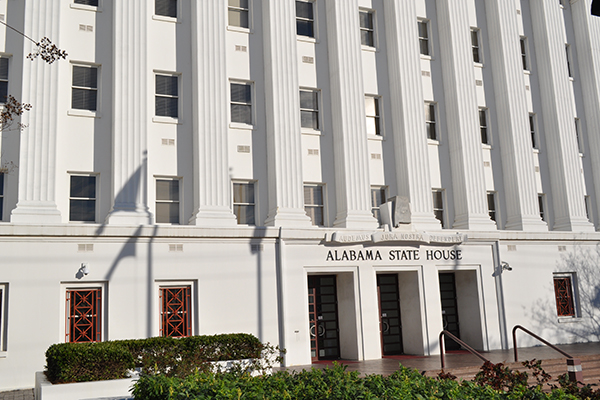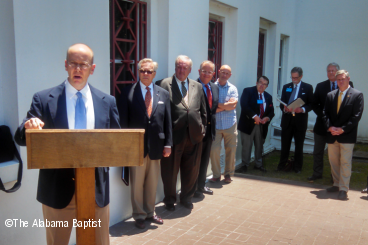The special legislative session that concluded Dec. 24 turned out to indeed be special for lawmakers opposed to video gambling.
Not only was yet another gambling bill forced off the Senate calendar due to lack of support, but a surprise resolution was passed that could give the anti-gambling supporters a much needed shot in the arm.
Rep. Jim Carns, R-Mountain Brook, submitted a resolution asking for and receiving approval to send the latest gambling bill to the Alabma Supreme Court for an opinion.
The bill that Carns has asked the Supreme Court to review is House Bill 51, which was sponsored by Rep. John Knight Jr., D-Montgomery. Knight’s bill dealt with raising the percentage of the amusement tax on video gambling devices from 4 to 10 percent. Knight wants this revenue increase to go toward the education fund deficit. Knight said he had heard reports of the number of video gambling machines being as high as 70,000 in the state.
Carns is asking for an opinion as to whether a bill can be submitted asking for an increase in tax revenue when the legality of the gambling devices has yet to be determined.
Carns submitted a similar request in April 2001 asking for the Supreme Court to clarify the legality of a video gambling bill originating in the Senate when state law requires revenue-generating measures to begin in the House of Representatives. Four of the Supreme Court justices issued a broader opinion addressing the actual legality of video gambling devices. They stated that the law was in violation of the state constitution’s ban on lotteries. This unexpected opinion was hailed as a major victory indicator of things to come in regard to the state’s highest court ruling against the controversial video gambling industry.
Dan Ireland, executive director of Alabama Citizens Action Program (ALCAP), said he hopes the Supreme Court will issue their opinion before the regular session begins Jan. 8.
“If they give an opinion stating that the bill is not permissible then the chances of any other similar legislation getting passed is slim,” he said. “I think we have a good idea of what the majority of the Supreme Court justices think about the legality of video gambling in Alabama,” he added.
Irelend noted the “tenacious job” Rep. Arthur Payne, R-Center Point, did in his efforts to get HB51 tabled so it would not be voted on during the session. At the same time, Ireland was making his own waves. “I made an appeal to the House, Ways and Means Committee asking them if they were willing to go on record having voted for this video-casino bill. ‘What will your constituents back home think?’ I asked them.”




Share with others: